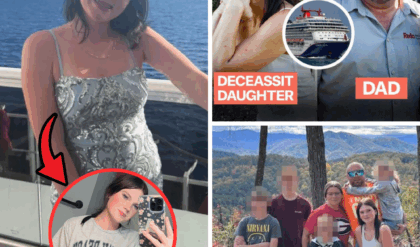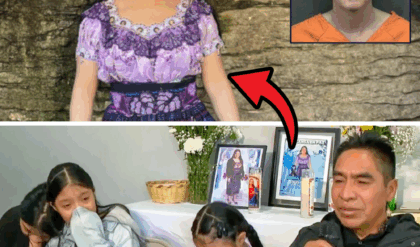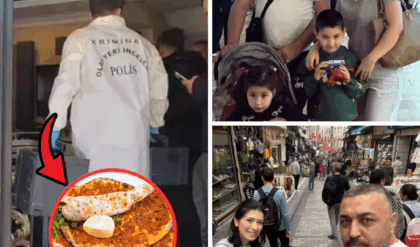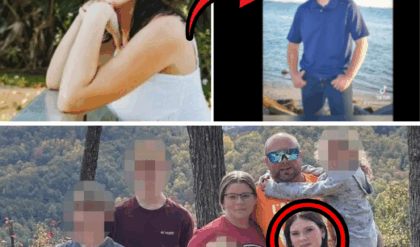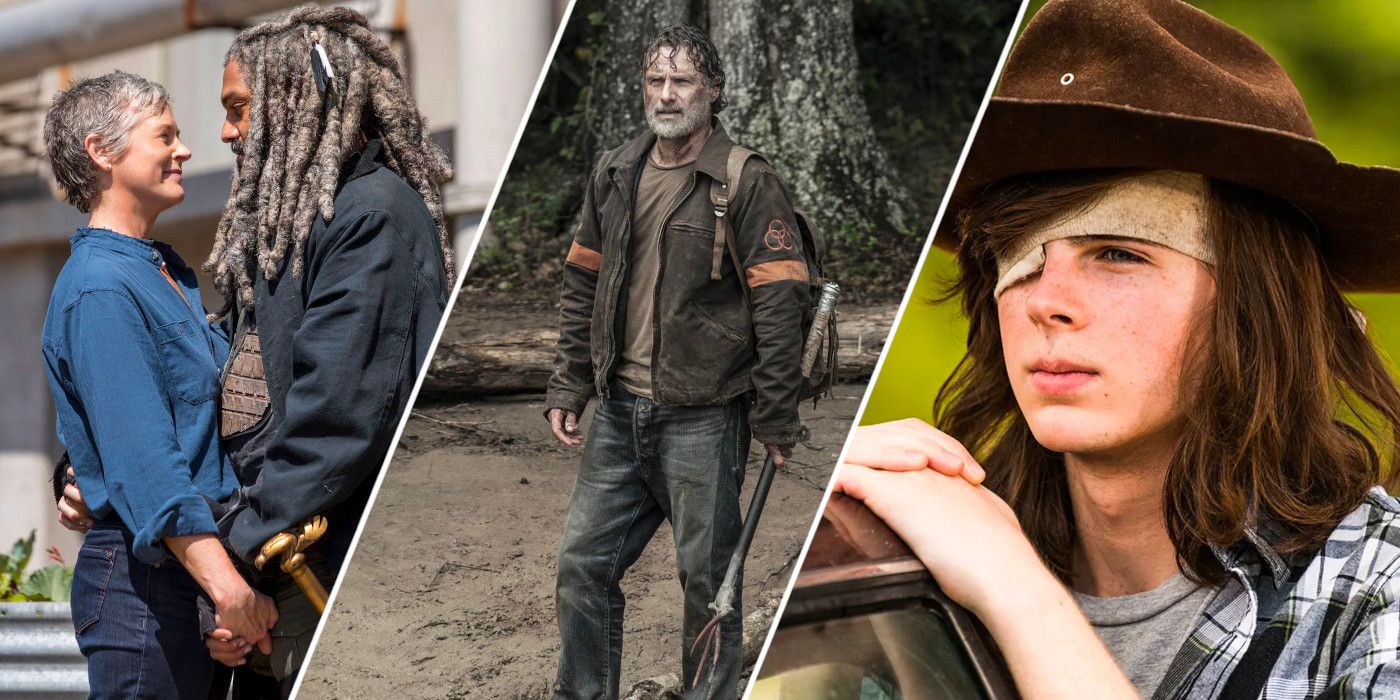
Content Warning: The following article contains spoilers for the AMC show The Walking Dead.As popular as The Walking Dead (TWD) was for its 11 memorable seasons on AMC, any show that lasts that long is bound to have a few not-so-fan-favorite moments. While Rick’s final moments in the show, and Negan brutally murdering Glenn and Abraham were tough scenes to watch, they still weren’t the worst decisions the series made.
From leaving storylines unresolved in the end to killing off beloved characters for no apparent purpose, to never delving into the logistics of the zombie apocalypse, the series made a number of decisions that struck fans as unrewarding. Just as its characters were never immune to the outbreak, TWD was far from insusceptible to poor decisions with these being among the worst the series made.
Updated on May 13, 2023, by Ryan Heffernan:
AMC’s The Walking Dead may have come to an end now, but the hit zombie horror series has spawned several spin-offs to keep fans immersed in the post-apocalyptic adventure. With the eighth season of Fear the Walking Dead upon us, now is a perfect time to celebrate the many things the original series did so well, but also reflect on areas where it could have performed better.
15Not Wrapping Up Virgil’s Story
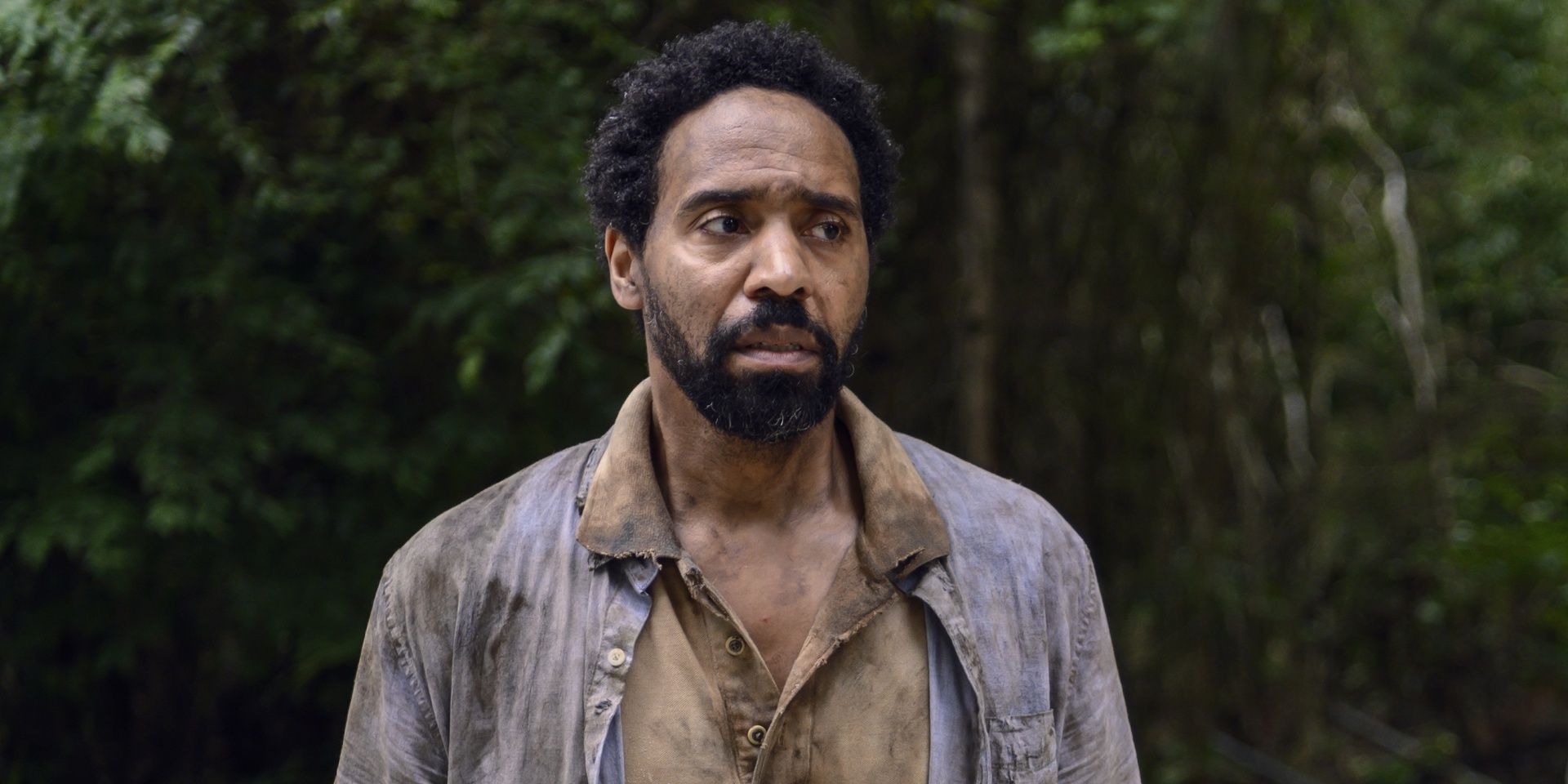
Virgil may not have been a major character during his six episodes in the series, but he was important enough to turn into an antagonist of Season 10, and later a hero of sorts when he shockingly came across a wounded Connie in the woods in the 10th season finale.
Virgil spent some time with Connie come Season 11, then had a heart-to-heart with Judith once they reunited with Rick’s group, but that was the last anyone saw of the character. For the remainder of the series, Virgil was not seen living in Alexandria or The Commonwealth, and was never mentioned again, leaving an unresolved thread in the story.
14Firing Frank Darabont
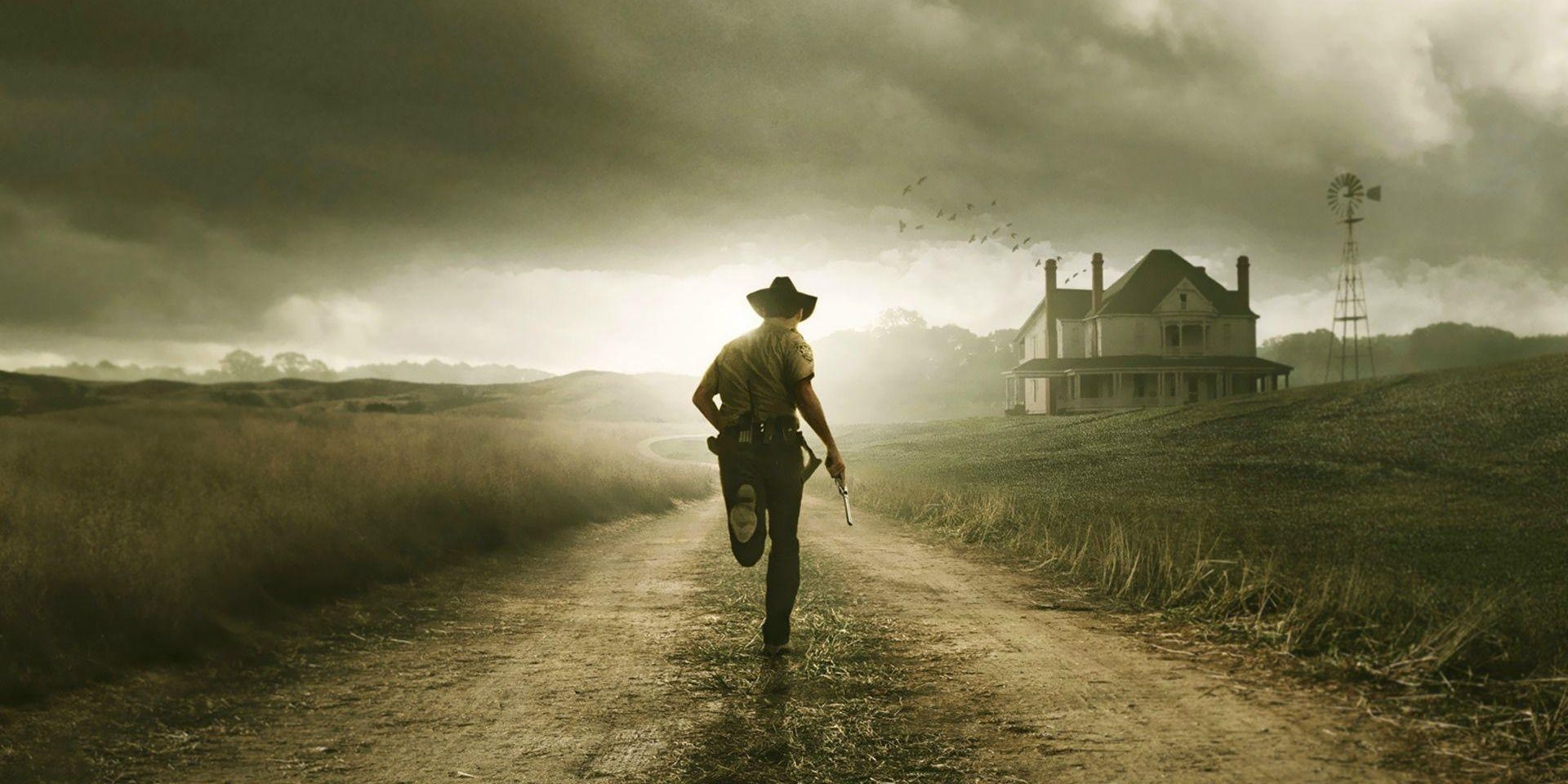
With a filmography including Oscar-nominated dramas and a slew of horror hits, Frank Darabont was the perfect candidate to bring TWD to the screen. His expertise saw season one become a surprise sensation, but he was fired from the series before its second season even entered production in an unprecedented move that raised eyebrows in the industry.
A difficult relationship between Darabont and AMC was the cause of the rift which resulted in the filmmaker filing a lawsuit against the company. Glen Mazzara replaced Darabont and, while the esteemed showrunner did a fine job, The Walking Dead seldom reached the heights of its debut season again.
13Fathers Never Meeting Their Children
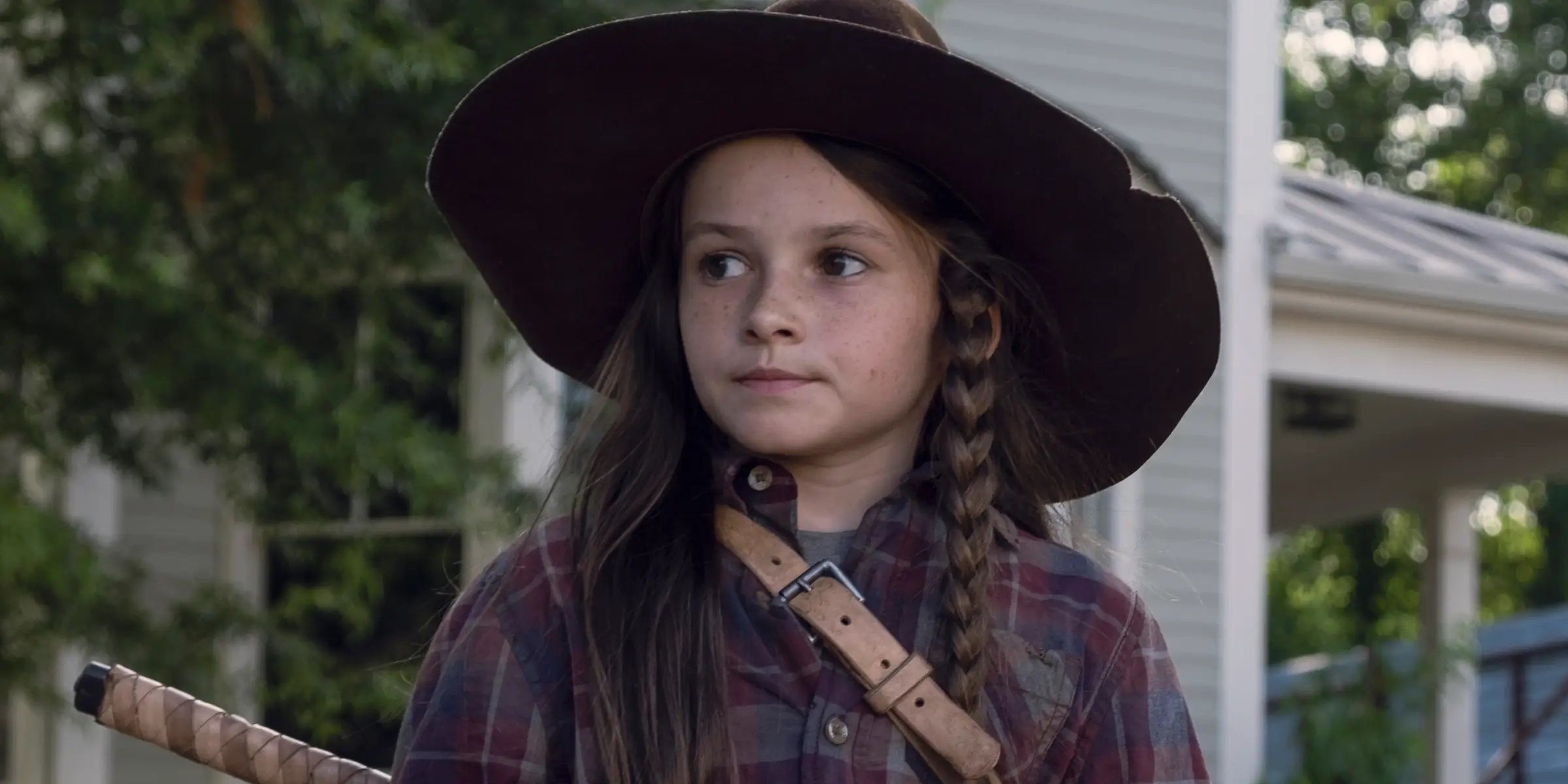
Separating fathers from their children seemed to be a running theme on TWD. It could be argued it started way back in season two with Shane dying long before the birth of his potential daughter in Judith who came into the series in season three.
The same story was done all over again in Season seven when father-to-be Glenn was killed by Negan before he ever got to meet his future son, and again in Season nine when Rick was presumed dead without ever getting the chance to meet the child he fathered with Michonne. In a sense, there’s a grim reality to the trend, but to so regularly strip fans of the chance to see the family narratives play out robbed the show of a grounding sweetness that could have been a gripping new dynamic if handled in the right manner.
12Sending Morgan to ‘Fear The Walking Dead’
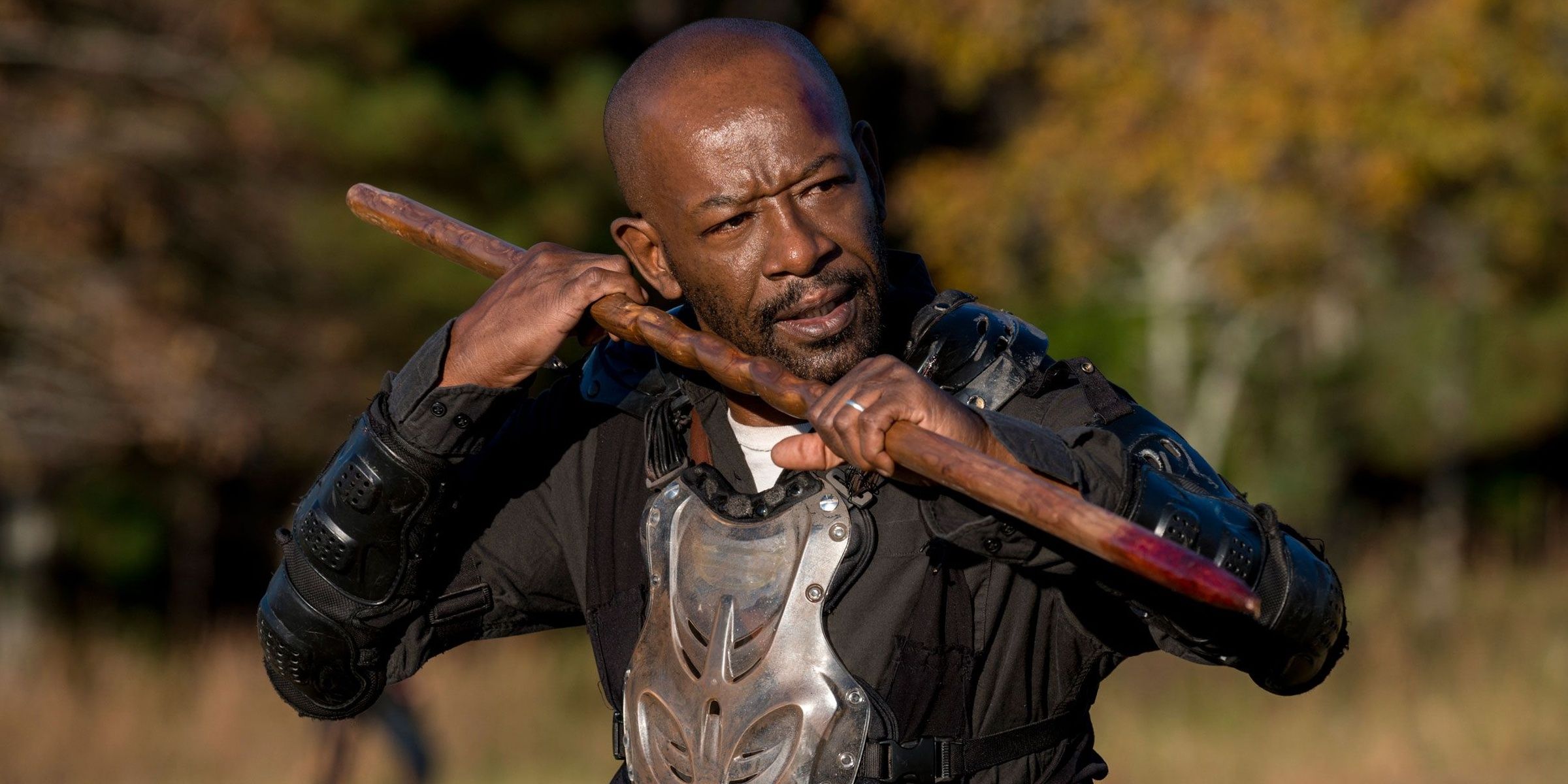
Since the first episode of TWD, Morgan became a notable character. He saved Rick’s life in the very first episode and served as Rick’s – and the audience’s – introductory guide to the zombie apocalypse before later returning to the series to help in the fight against Negan.
Morgan was loved by the characters and fans alike, and in 2018, the showrunners announced a crossover with spin-off Fear the Walking Dead, which would take Morgan from Alexandria and send him into the Fear timeline. Sending this major character over to the spin-off may have increased Fear‘s viewership, but left a main character-sized hole in TWD for the remainder of the show.
11AMC Announcing Andrew Lincoln’s Departure

Another example of AMC prioritizing hype over narrative, the departure of Andrew Lincoln from the show wasn’t just made public but bellowed aloud time and time again. While it could be argued AMC was allowing fans to embrace Lincoln’s final episodes, it completely stripped the series of what could have been its greatest shock twist.
Additionally, it drained the ninth season of much of its suspense as regular viewers were constantly being reminded of Lincoln’s pending departure. The approach was so ridiculous in the end that the series resorted to a cliffhanger after teasing Rick’s death only to showcase the previews for the following week’s episode (prominently featuring Rick) moments later.
10Burning Eugene’s Book

Eugene’s storyline dwindled for a minute before getting spruced up in Season 10 when he started forming a relationship over the radio airwaves with another survivor. After a long and brutal journey to Eugene finally meeting and falling in love with Max, his storyline only grew up until the series finale.
But one major plot point that wound up being short-lived was Eugene’s novel. In Season 11, Eugene revealed he’d written a sci-fi novel, only to commit the worst crime in any writer’s eyes by burning every last page of his book. Despite the possibilities surrounding Eugene’s book, it was never mentioned again after he burned it.
9Negan and Alpha’s Moment in the Woods
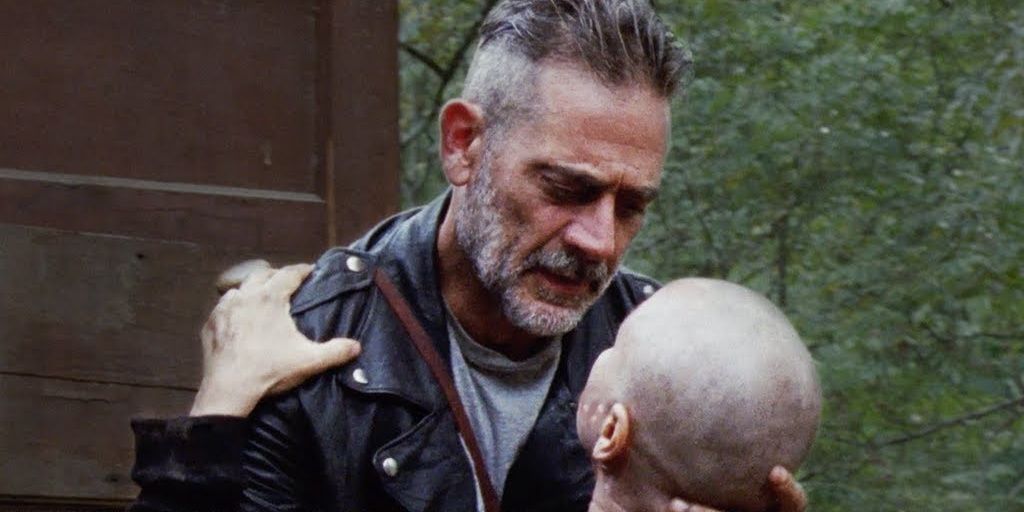
In the midst of a zombie apocalypse, it’s understandable that intimate moments would be few and far between. The show gave viewers a peek into Maggie and Glenn’s relationship at the start, and later vaguely delved into Rick and Michonne’s bedroom moments.
But it understandably made everyone’s stomachs turn when Negan and Alpha had sex in the middle of the woods in Season 10. While some might say the two villains deserved each other, Negan seducing Alpha wasn’t necessary to further the storyline, nor was it fun to watch.
8Making Negan a Major Protagonist
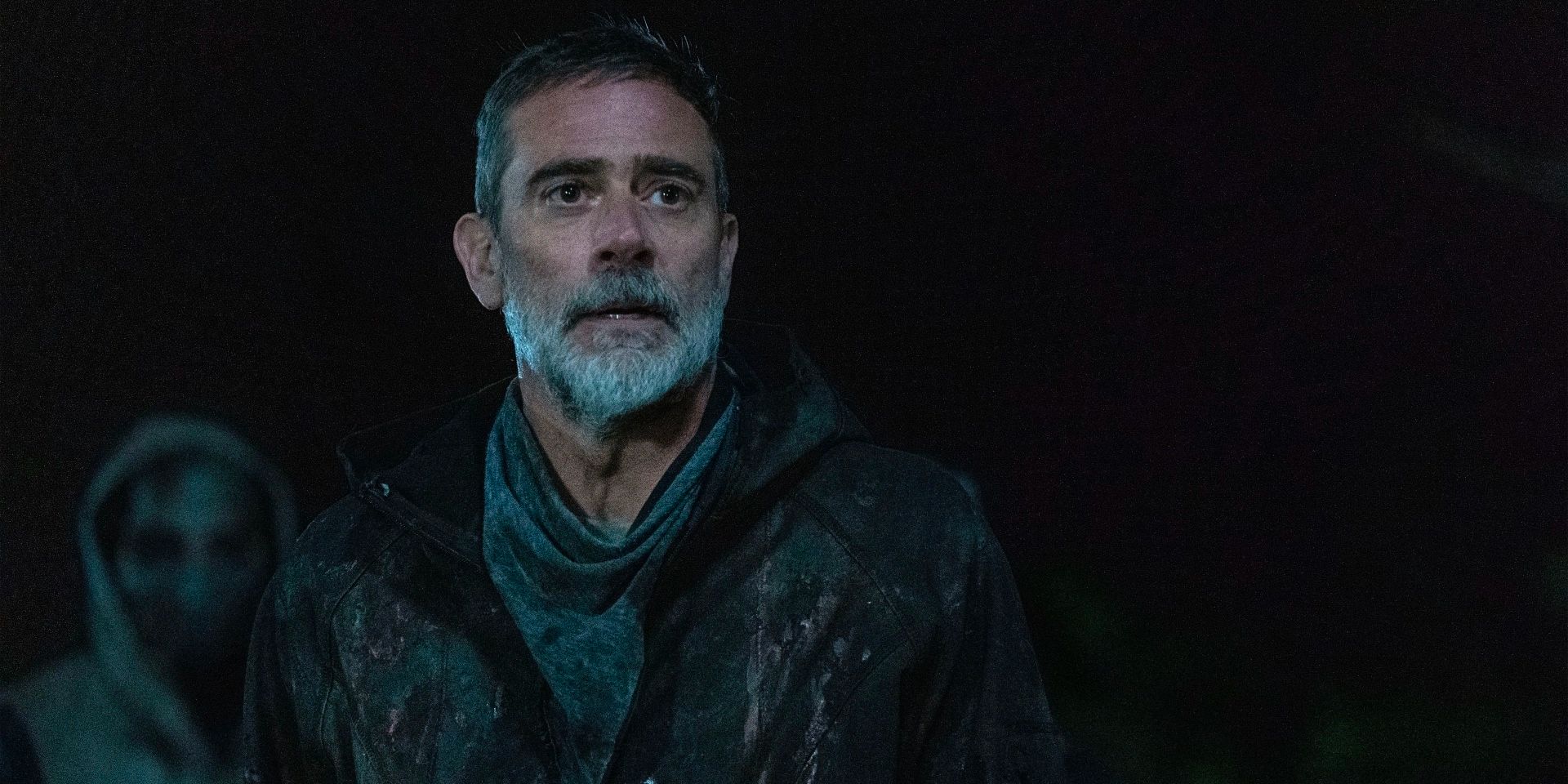
As a narrative device, there is absolutely nothing inherently wrong with turning a villain into an unlikely hero. It can be a powerful twist in the story and, furthermore, Negan undergoes a similar transition in the comics (albeit to a lesser degree), but the series struggled to find the right balance for the character.
With the charismatic figure becoming a fan favorite, the showrunners were eager to give him as much focus as possible. While the series showed glimpses, it ultimately fell short of making Negan the impactful antihero he was in the comics, and the story was sometimes hurt because of its commitment to Negan and the screen time that stole from other characters.
7Breaking Up Carol and Ezekiel
.jpg)
No one on the show seemed to have it easy, but for Carol, it was the relationship department where she had it the hardest. The character started the show in an abusive marriage, just to not date anyone until Season 6 with her brief relationship with Tobin.
It wasn’t until her Season 9 relationship with Ezekiel that it seemed Carol finally found the person she was meant to be with. Engaged to be married, the two even had an adoptive son, but it all came crashing down by the end of the season when the death of their son tore them apart romantically. Breaking the couple up was pointless for both characters, who remained good friends until the series concluded.
6The Fake Deaths
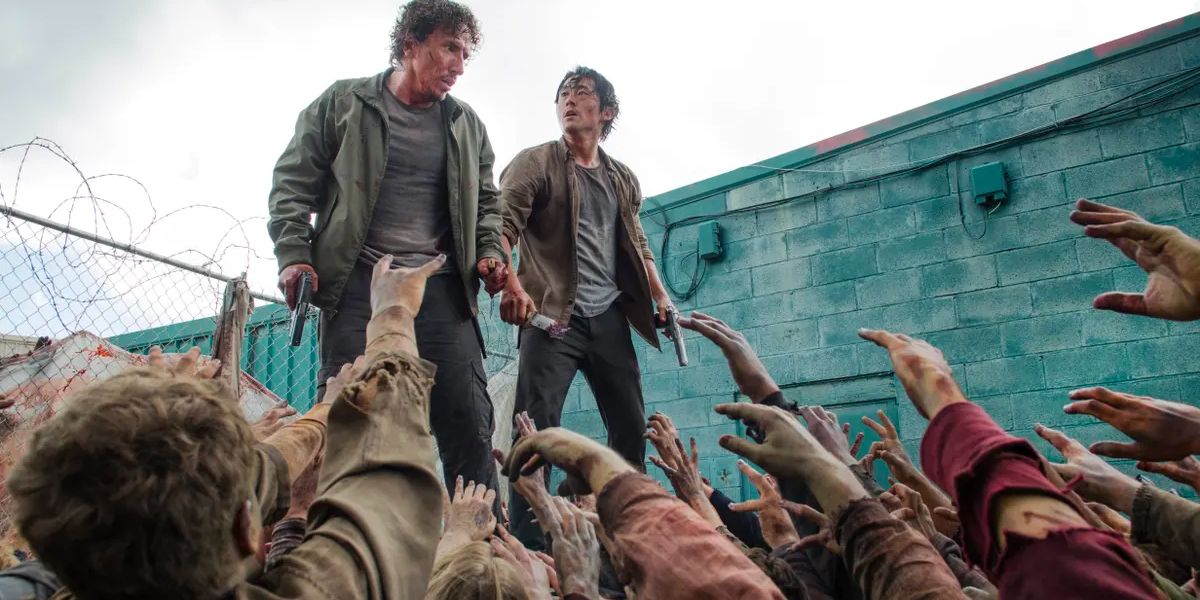
The longer the series went on, the more apparent it became that the writers were striving for clickbait moments rather than meaningful plot points and impactful consequences. The ugliest offspring of this was the fake deaths of central characters, which not only provided a false drama, but also resulted in fans losing trust in the show.
Even with Glenn Rhee’s infamous fake death scene in season six being poorly received by fans, the series still used the disingenuous ploy as a means to build tension. Granted, it is difficult to continually raise the stakes in a life-or-death drama like TWD, but stooping to such gore-infused narrative tricks was a poor way to treat its loyal fans.
5Not Exploring the Evolution of Walkers
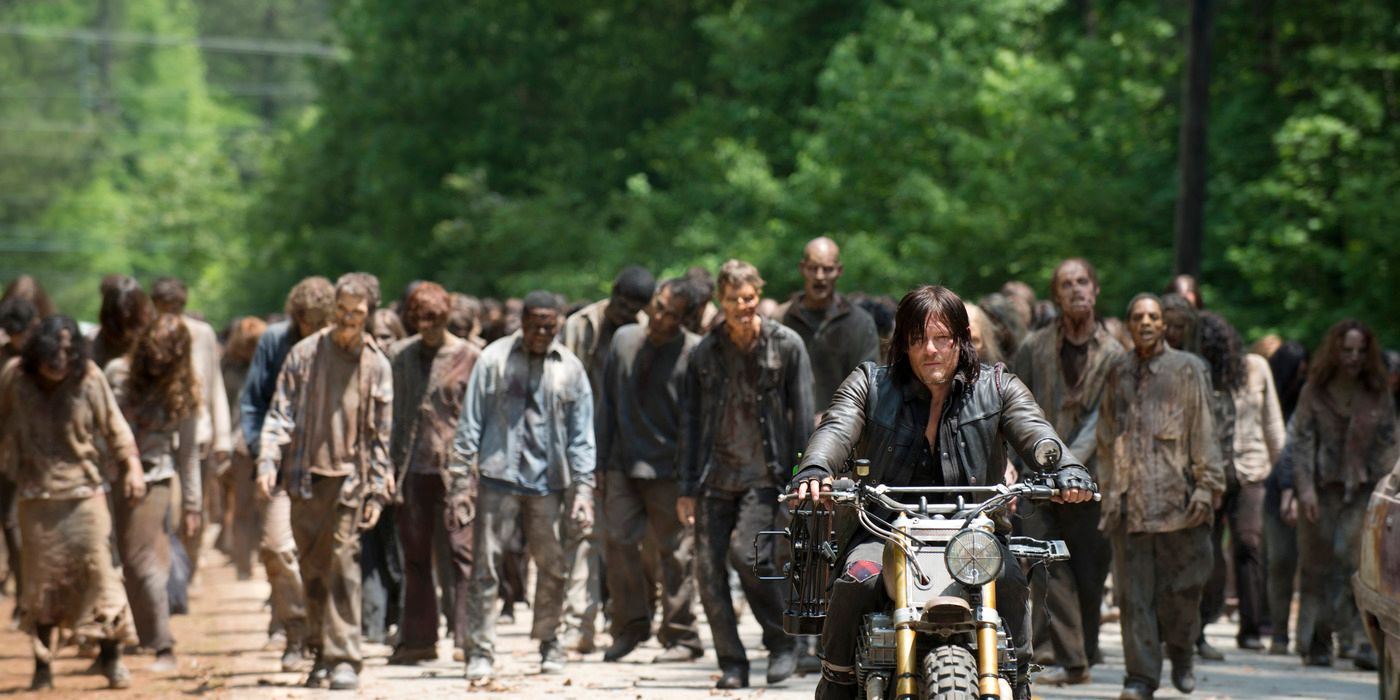
When the show began, they never took a deep dive into the different kinds of zombies there were, unlike The Last of Us, which quickly explained the different types of zombies and how to defeat them. Aside from a few water-logged walkers, the zombies of TWD remained mostly the same.
It wasn’t until the last few episodes of the final season that walkers began evolving, getting human traits back like picking things up and climbing. While Aaron mentioned he heard of the evolution, after the initial shock of a walker climbing up a wall and another one picking up a rock, the theory was never explored again for the remainder of the series.
4Daryl and Leah
.jpg)
Something even eerier than the walkers in the show was the unexpected relationship between Daryl and newcomer Leah, which kicked off in Season 10’s “Find Me,” the episode featuring Daryl’s time spent away from the group after Rick’s disappearance.
While his relationship with Leah was short-lived until Season 11 when she returned as part of an enemy group, it started another overdone storyline of Daryl getting kidnapped and verged on unnecessary for a character who hadn’t had a romantic relationship throughout the duration of the show.
3The Negan Cliffhanger
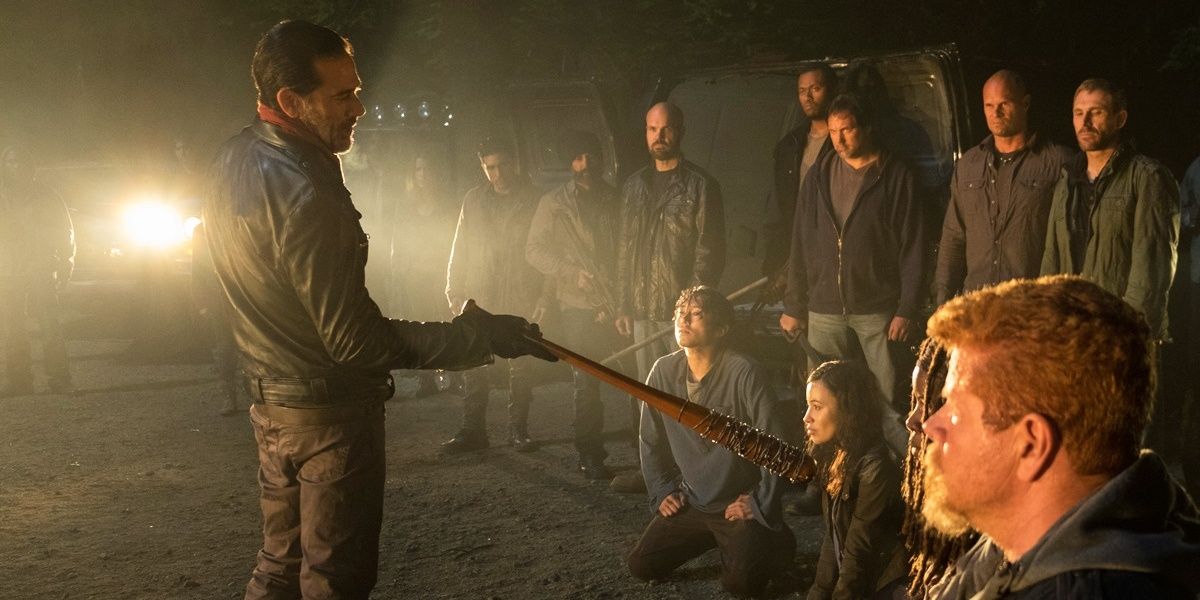
Regardless of fans’ knowledge of the comic books, everyone knew the arrival of Negan (Jeffrey Dean Morgan) would bring about a new era for the series. The second half of the sixth season was dedicated almost entirely to building up the Saviors and raising the stakes ahead of Negan’s introduction, and when it finally came it was overwhelmingly… disappointing?
While Morgan announced himself as the perfect actor for the part, the show’s infamous penchant for cliffhangers ultimately undermined his long-awaited arrival. Leaving audiences in the dark, the bizarre POV execution sequence made fans feel betrayed and unsatisfied as the series opted to prioritize a must-watch season seven premiere at the expense of delivering a rewarding finale.
2Killing Off Carl
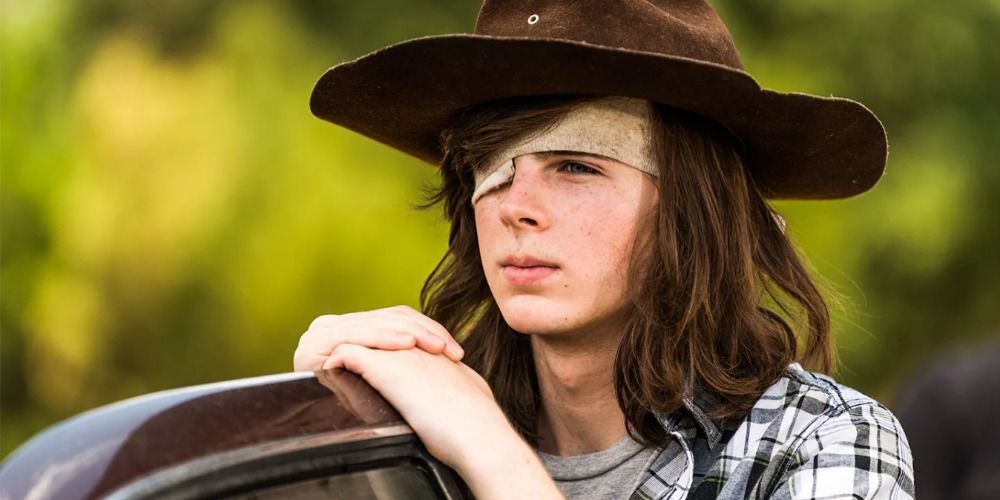
Dale’s, Glenn’s, Rosita’s and even Dwight’s death was a cause for uproar during The Walking Dead, but no character’s death was as pointless as Carl’s. A beloved character from the start of the show, it was a devastating realization when Carl revealed he’d been bitten in Season 8.
Carl’s devastating and unnecessary death got rid of a good, steady character who fought well against threats, had an adorable relationship blossoming with Enid, and was the only certain family member Judith had. Although the character’s legacy lived on until the series ended, putting Rick – and the viewers – through that tragedy only eight seasons was a narrative misstep that didn’t directly lead to anything essential.
1Cliffhanger Series Finale
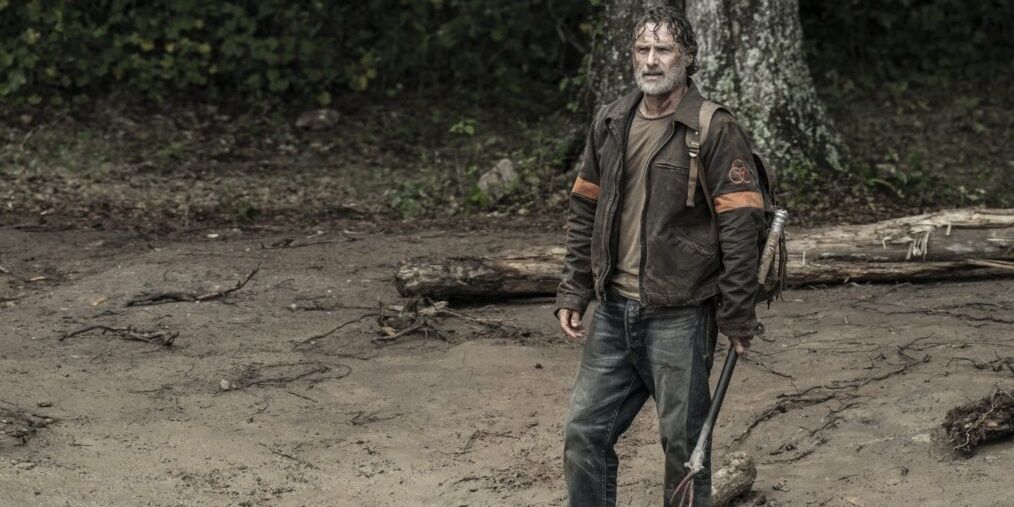
Through 11 seasons, TWD conjured up plenty of loose ends that were in need of tying. How did Daryl end up in France? Where has Rick been all this time? And will there be a happily ever after for fan-favorite characters before the end credits role?
Instead, the series finale endeavored to pose more questions than it answered. It was a means to raise awareness and interest in the multiple upcoming spin-offs like The Walking Dead: Dead City, Daryl Dixon, and the Rick and Michonne miniseries. While hinting at, and even subtly setting up all those series was a reasonable thing to do, it neglected to conclude the story of TWD as characters went their separate ways instead of finding resolutions.

